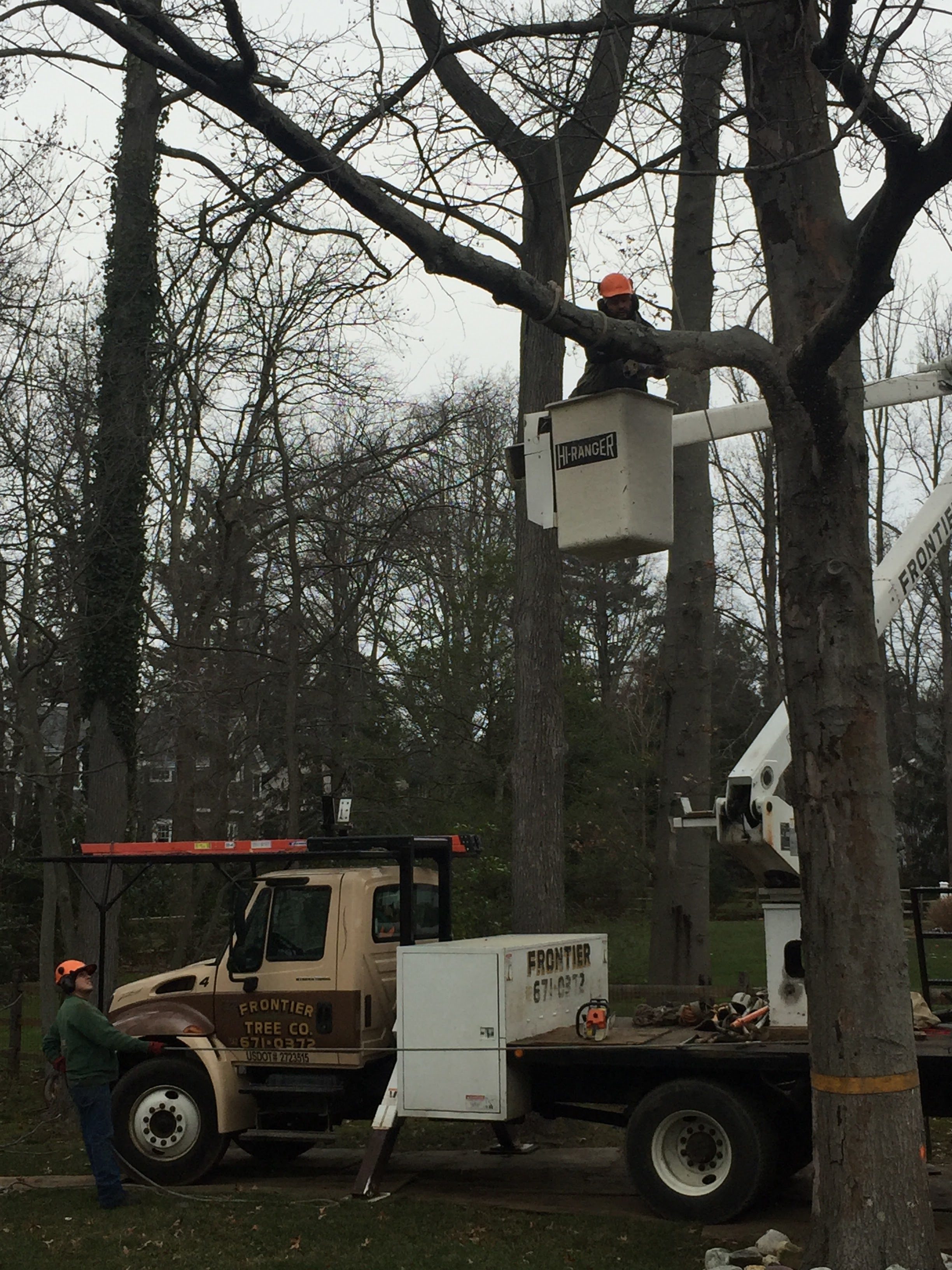Tree Pruning
Tree Pruning
Tree pruning is one of the most popular tree services, but is also one of the most important. Proper tree pruning improves the structural integrity, beauty, and health of a tree. It also increases a tree’s financial value to a landscape.
Frontier Tree prides itself on our quality of work and attention to detail when it comes to pruning trees. We have certied NJ Tree Experts on staff that are professionally trained in all phases of pruning.
Why Do Trees Need to Be Pruned?
Tree pruning maintains and/or improves a tree’s overall health. The following conditions are often signs that a tree should be pruned:
- Crossed, decaying, dead, or broken branches
- Lower branches obstructing pathways or vehicles
- Branches have grown too close to utility wires or buildings
- Reduce wind resistance
Types of Tree Pruning
There are several types of tree pruning techniques that arborists use today. Each tree must be thoroughly assessed to determine which technique is best for each individual tree. It’s never recommended to remove more than 20-25% of a tree’s canopy. Excessive and improper pruning can compromise the structure and health of a tree.

Crown Cleaning
Crown cleaning is the selective removal of dead, diseased, broken, or weakly attached branches from a tree’s crown or canopy. Crown cleaning every few years will keep your trees safe and correct a problem before it becomes a major safety hazard. It will also help the tree withstand potential damage from future storms and wind.
Crown Thinning
Crown thinning is usally paired with crown cleaning. This pruning technique removes select branches within the crown. This is often done in order to improve air flow and improve the tree’s structure by removing any crossed branches. Trees that have proper air flow are less likely to develop certain diseases and are less prone to failure during storms.
Crown Raising
Crown raising removes the lower branches of a tree. This is usually done to provide clearance below the tree for pedestrains, vehicles, or buildings.
